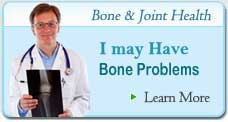» Anti-Aging
» Bones Joints & Muscle Health
» Cardiovascular Health
» Chronic Pain Management
- Emotional Impact of Fibromyalgia
- Fibromyalgia - Symptoms, New Treatments, Common Causes and How To Prevent
- Understanding & Managing Chronic Pain
» Dental Health & Wellness
» Digestive Health Problems
» Health Care
» Mental Health
» Sexual Health
» Skin Care

Understanding & Managing Chronic Pain
Being in any kind of pain, and chronic pain in particular, is not the best way to spend your life. While a sharp pain may mean experiencing discomfort for a short duration, chronic pain can negatively affect your life for months or even years.
This kind of discomfort can take a serious toll on the physical and mental aspects of your life.
Besides the obvious physical discomfort, most patients are plagued by depression because of the unending pain.
| Rating | Recommended | Description | Review | ||
|---|---|---|---|---|---|
 |  | Nerve Pain Plus Alleviate Nerve Pains
| Find Out More |
In addition, constant discomfort can prevent you from exercising, and as you know, lack of exercise is one of the major causes of depression.
What Are The Leading Causes of Chronic Pain?
Most often, pain is termed as chronic when the discomfort or pain refuses to go away for an extended period even after the expected recovery period is long passed.
When attempting to manage this pain, it is necessary to identify the cause rather than responding to the symptoms as this will only result in limited relief. This explains why you can experience relief for a while only for the pain to return once you are back to an active lifestyle like biking, golfing or exercises.
The reason why your pain keeps returning is that you always deal with the symptoms rather than the actual cause of your pain.
Here are five common causes of chronic pain that you need to know and avoid as part of your pain management program.
i. Advanced or elevated stress
There are two types of stress: Eustress (positive) and distress (negative). You need the positive stress in your life for optimal performance because stress is linked to performance. With it, you can be your best.
On the other hand, you do not need negative stress in your life at all. Incase you do not know, excessive stress is the primary cause of disease. The stresses of life can be so overwhelming, and before you realize it, you will be anxious, angry, irritated and frustrated. This is the point where your emotions begin to get the best of you, releasing hormones like cortisol and adrenaline, which are unhealthy to your system.
The result, your blood pressure begins to rise while your breathing becomes shallow leading to tension in your muscles. This finally leads to discomfort, tightness, headache and pain.
ii. Too much sitting
The nature of your job may require you to spend several hours seated. However, you need to know that sitting for too long in the same position is not suitable for your health.
As a result of spending several hours in the same position, your hips, hamstrings and quads will not have away of moving, resulting into poor blood circulation. As you remain in the same position, your back muscles will begin to tighten, pulling your shoulders forward.
This will result into a build up of tension in your neck, shoulders and back as you slump and hunch forward. All these result in poor posture that alters your body fascia, limiting its elasticity and causing unending pain in the process.
iii. Poor exercise programs.
A poorly designed workout program is one of the major causes of chronic pain.
For instance, while it is recommended that you should be doing a 1:1 ratio of pull and push exercises, most people overlook this rule resulting muscular stain and injuries and hence chronic pain.
iv. Too little stretching
The significance of stretching as part of your exercises cannot be overstated. Failing to stretch properly can result in discomfort, muscular tightness, potential injuries and pain.
This problem worsens as you age hence you need to take stretching seriously.
v. Poor recovery and regeneration
Chronic pain will never go away if you do not take time to rest and recover after an injury. Your recovery needs to be an active process. Therefore, allow your body to regenerate by having proper nutrition, sleep and flexibility.
Managing Chronic Pain
You need to know that ignoring or failing to address the origin of the pain can result in severe physical and psychological problems. At the same time, you need to know that chronic pain management is not a quick fix.
Therefore, you need to employ a multidisciplinary approach when managing your pain. A combination of medications, patient education and psychological counseling is generally your best approach.
Here are three key steps to managing your chronic pain
i. Respect the pain
Since pain management requires several office visits, it is essential that you find a physician that understands you, your condition and your pain.
Most patients find themselves without adequate attention or having their concerns dismissed by their physicians. The causes of chronic pain are varied because it occurs in the absence of any ongoing illness.
Therefore, you need to a doctor who is ready to corporate with you as much as possible in order to determine the actual cause of your pain.
ii. Appreciate the psychological aspect of the pain
Pain can take over your life. As such, you should take deliberate steps to manage it. According to surveys, two out of three chronic pain patients have coexisting symptoms of anxiety and depression.
As a result, most patients get discouraged after several trips to the doctor and countless diagnostic tests thus becoming victims of their own pain.
iii. Engaging a range of treatment options
It is essential that you know the various chronic pain treatment options available. Be clear when speaking with to your physician and discuss all possible options. Let your doctor know that you are willing to try any available option.
Some of these treatment options include chiropractic, massage, acupressure and acupuncture treatments. In addition, you need to discuss your medication options, which may include psychiatric, neuropathy and pain medications.
Always remember that you are not alone. There are millions of people out there suffering from chronic pain. In addition, there are qualified physicians who can help you manage and overcome your pain.
It is crucial that you understand the potential causes of your condition in order to take the right steps towards finding a long term pain management solution that will lead to complete recovery.
» Learn About A Powerful New Pain Relief Solution
You May Also Find Informative:
Aging Fit - Health Research & Information
Better Health. Energy. Quality.






